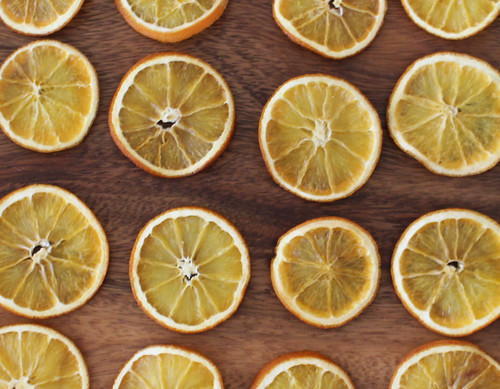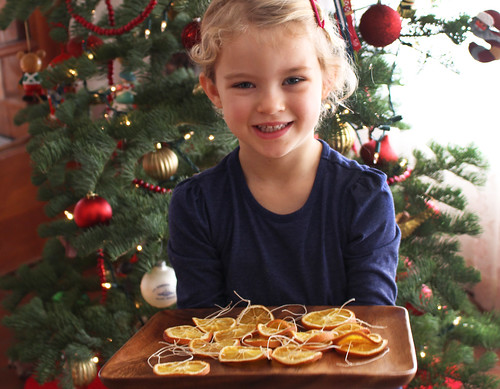Happy Holidays from CAFF!
Here is a re-post from Farm Fresh to You in the Capay Valley, homemade and all-natural tree ornaments!
Read more on their blog: http://blog.farmfreshtoyou.com/2014/12/how-to-make-dried-orange-ornaments.html
How to Make Dried Orange Ornaments

Ainsley helps to decorate the family Christmas tree
Each
year we try to make something natural and eco-friendly to add to our
tree decorations. This year we landed on citrus ornaments, which make
such a cheerful and fragrant addition. Although we chose oranges this
year, lemons and grapefruit would also work well.

This is a very simple craft to do with your little ones and will make a colorful impact on your Christmas tree.


This is a very simple craft to do with your little ones and will make a colorful impact on your Christmas tree.

Imogen Prepares to Thread the Orange Slices
DRIED ORANGE ORNAMENTS
Makes 20 Ornaments
WHAT YOU NEED:
5 oranges
1 sharp knife
needle & thread
baking Sheet
oven
DIRECTIONS:
Preheat oven to 200 degrees.Using a sharp knife, slice oranges thinly, you should be able to get 5 nice slices per-orange. Lightly dab off any extra juice with a towel.
Arrange orange slices on a baking sheet and put into oven for two hours.
Reduce
oven heat to 140 (that is as low as mine goes) and remove the orange
slices from the baking sheet and place directly on rack.
Turn slices once after about an hour to keep them from curling or sticking. Turn off oven and leave overnight.
The following morning, remove slices from oven. Use a needle to thread a string through the orange slice. Tie in a knot to make a loop.
Turn slices once after about an hour to keep them from curling or sticking. Turn off oven and leave overnight.
The following morning, remove slices from oven. Use a needle to thread a string through the orange slice. Tie in a knot to make a loop.
And that’s it! With minimal effort, you have 20 all-natural rustic ornaments to adorn your tree with. And since you made them by hand, you get bragging rights when guests visit for the holidays and comment on your lovely and unique tree ornaments.
To find this craft and other seasonal recipes, visit our website.













